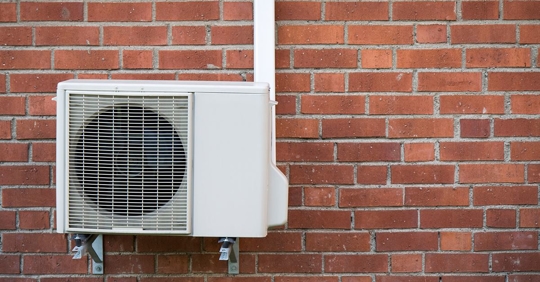If you’re looking into your options to reduce your heating costs in the mild Carolina winter and potentially reduce carbon emissions as well, investing in a heat pump system may be the solution, especially because the federal government under the Inflation Reduction Act is offering homeowners incentives on air-source heat pumps, which range from absolutely free to $2,000 worth of tax credits, depending on your level of household income.
Here we discuss what a heat pump is, how it works, and the different options available.
Is a heat pump an HVAC system? How does it work?
Yes, a heat pump is an HVAC system that replaces both your furnace or boiler heating system and your air conditioner. It’s a two-in-one solution that’s 300% efficient (compared to 95% efficiency for a gas furnace) and powered by electricity. If you currently use natural gas, propane, or heating oil to heat your home, installing a heat pump will vastly reduce your home’s carbon footprint.
Instead of burning fuel to heat cold air—as with a furnace—heat pumps simply transfer heat that already exists from one place to another (the ambient outdoor air to your home). In the winter, it may feel like there is no heat outside, but there is. It also works in reverse to pump warm air out of your house when it’s too hot, acting as an air conditioner that also reduces humidity.
Here are the components of an air-exchange heat pump HVAC system and how it works:
- Gathers heat. In the winter months, the heat pump uses cold, liquid refrigerant to draw warmth from the cold air (or ground for geothermal heat pumps) and convey it to your home.
- Pressurizes to boost the temperature. The refrigerant route passes through the evaporator and compressor, which convert the liquid to gas and increase the temperature by pressing the molecules closer and closer.
- Moves heat from outdoor to indoor. A system of coils bridges the gap between the indoor and outdoor units, allowing the refrigerant to pass from one to the other. The exchange valve, which is housed in the outdoor unit, gives you the ability to change the direction of the flow and either heat or cool the house.
- Releases the heat. The fan in the indoor unit dispenses the cooled or heated air.
- Cools again. As the refrigerant delivers the heat, expansion takes place and the gas cools back to liquid form.
Related Content: Heating System Failure: Should You Repair or Replace?
What kinds of heat pumps are there?
While there are several different heat pump systems, here are the main types:
- Air-source heat pumps are among the most common. Regular systems offer air-to-air heating, while some—for instance, the air-to-water heat pump—provide you with a hot water supply or a warm floor from in-floor heating.
- Ground-source heat pumps transfer the heat trapped in the ground, offering a more efficient option during the cold months rather than drawing heat from wintry air. The drawback is the pricey installation from having to bury a loop of piping on your property.
- Water-source heat pumps use an underground well or lake to source heat.
Should you install a heat pump HVAC in your Carolina home?
Living in a moderate climate like the one we have in the Carolinas makes your home very compatible with a heat pump system or heat pump mini-split. If it replaces a gas or propane furnace or boiler, the heat pump will also lower your monthly operating costs and greatly reduce your home’s carbon footprint for the next 15 years or so.
If you decide a heat pump is right for your Myrtle Beach, South Carolina home or your Brunswick County, North Carolina home, the experts at Swift Services Heating, Cooling & Electrical are ready to help you choose the right model and perform a professional installation. Simply give us a call at 843-352-6427 or request service online to learn more about heat pump service in Myrtle Beach, SC, and the surrounding area.

